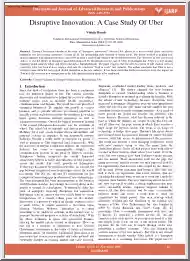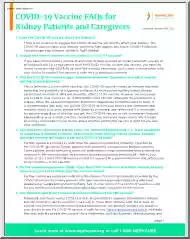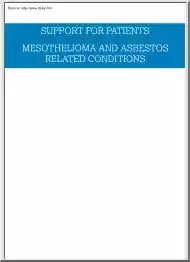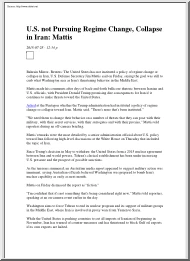No comments yet. You can be the first!
What did others read after this?
Content extract
Reviews and Notes 214 Macbeth by William Shakespeare Fully Annotated from an Oxfordian Perspective Second Edition, Revised and Expanded, by Richard F. Whalen With an Essay on “Acting Macbeth” by Derek Jacobi The Oxfordian Shakespeare Series Coral Springs FL: Llumina Press, 2013 iii + 235 pages, $13.95 Reviewed by Felicia Londré !of Oxford, with the authorship of the works ascribed to William Shake-speare ranted “the most persuasive evidence” for crediting Edward de Vere, 17th Earl is “the large number of correspondences in the plays to Oxford’s life experience and his times” (i), this edition makes a compelling case. In 2007, Macbeth was the first volume published in the Oxfordian Shakespeare Series, a monumental project that will eventually give all of the plays in the canon the unblinkered placement in their historical context that they deserve. As the project gears up, aspects of the format are refined to enhance these editions’ usefulness for readers. In the
case of this revised and expanded second edition of Macbeth, Richard Whalen has reordered supporting materials into more logical arrangement and has rewritten some selections to emphasize and further explore key ideas. A fifteen-page overview covers the dramatist’s life, his stage and audience, composition and publication of his plays, and the controversy over his identity. This adds up to a lucid presentation of essential points for the non-specialist in Shakespeare authorship studies. Starting from the premise that Edward de Vere is the one whose life and travels “fit the profile” of the author of the works of Shakespeare, the overview covers a lot of ground in short order. It is surely appropriate that the case against the Stratford man gets no attention here. However, the bibliography of Suggested Reading for “the general reader” (17) that follows this overview might more usefully include along with the basic works that make the case for de Vere A.J Pointon’s
persuasive The Man who was Never Shakespeare as opposed to James Shapiro’s Contested Will. Brief Chronicles V (2014) 215 The “Introduction to Macbeth” signals the main points that will reappear in the textual notes as well as in some instances in the commentaries that follow the play text. As a fresh and commonsense reading of the play, two main ideas emerge. First, ambition is not, as generally claimed by rote, Macbeth’s tragic flaw; he is rather a man whose honor flourishes in battle but gets corrupted when he tries to function out of his element in the hothouse of political intrigue. Second, the Thane of Ross is not a mere messenger but the very embodiment of manipulative powermongering. The textual notes on the scene in which Ross visits Macduff’s wife further elucidate his villainy (148, 150). Certainly, Oxford was familiar with courtiers jockeying to further their own interests at the court of Elizabeth Among the arguments that tie Edward de Vere to Macbeth is the
author’s knowledge of specifics about Scotland ranging from its history and geography to its legal codes and locutions. Beyond Oxford’s six-months military service in Scotland in 1570, one may cite his friendship with Lord and Lady Lennox, his access to William Stewart’s unpublished Scottish poem that contains at least eight items used in Macbeth that do not appear in Holinshed (25), and his presence as a teen in the household of William Cecil in 1567 when Cecil was receiving reports from Scotland about the assassination of Lord Darnley. Indeed, one of those reports included a copy of a sketch of the murder scene that included a dagger apparently hovering in the air above the bodies. In the play text, this information is tellingly placed as a note to Macbeth’s line: “Is this a dagger which I see before me?” (74-75). The witches elicit some fascinating commentary by Whalen, as they have often served as a Stratfordian pretext for dating the play to the reign of James I of
England. Whalen’s separate essay on dating Macbeth shows how the play’s presentation of witches and the apparitions they conjure not to mention the narrative arc from the assassination of one Scottish king to the beheading of another “would have been more disturbing than pleasing for James” (210). Whalen points out in the Introduction as well as in the textual notes how the bawdy comic Scottish witches of their second appearance on the heath (I.3) morph into their alter egos, the Weird Sisters who prophesy in the manner of Greek Fates (42-45). Whalen’s examination of the complex issue of dating the play’s composition acknowledges Stratfordian attempts to link it to the Gunpowder Plot of 1605, but he finds topical allusions to earlier times more persuasive: debates over royal succession during the reign of Elizabeth, the 1581 trial of Edmund Campion that made an issue of Jesuit equivocation, a voyage to Aleppo by a ship named Tiger that occurred only in 1583, when it was
much discussed at court (42-43; 208-209). The annotations to the selected bibliography are very helpful for readers who might want to pursue further some of the questions raised in the essays: Who was De Vere’s tutor who owned the Anglo-Saxon Beowulf manuscript? What is the source of the “published rumors” that the bed-trick was perpetrated on Oxford? What is the “early record” of Oxford performing in a court masque? What are the sources for Oxford’s daughters taking “roles in several court masques” (7)? While this series is admittedly aimed at general readers, it would not hurt in future editions to err more on the side of excess of documentation. Indeed, given the necessary repetitions of Reviews and Notes 216 information in the essays and in the textual annotations, it would be worth considering the addition of an index in future editions. It should be obvious how many insights about Macbeth that arise from this work will be eminently useful for directors and
actors. For example, how many productions have we seen in which Ross was merely an interchangeable thane? Have we ever seen the double nature of the witches explored in staging? Along those lines, the essay on acting Macbeth by Derek Jacobi (himself an Oxfordian) sublimely caps the assemblage of materials. Jacobi recounts illuminating details about the process by which he found the character of the “psychologically, mentally, emotionally, and physically” exhausting title role for the production directed by Adrian Noble in 1993. Like Oxfordian scholars, the artist Jacobi trusted the text to yield its secrets rather than trying to bend it to preconceived notions. Finding the truths in Shakespeare for the stage could well be the greatest contribution of this series of play texts annotated by Oxfordians
case of this revised and expanded second edition of Macbeth, Richard Whalen has reordered supporting materials into more logical arrangement and has rewritten some selections to emphasize and further explore key ideas. A fifteen-page overview covers the dramatist’s life, his stage and audience, composition and publication of his plays, and the controversy over his identity. This adds up to a lucid presentation of essential points for the non-specialist in Shakespeare authorship studies. Starting from the premise that Edward de Vere is the one whose life and travels “fit the profile” of the author of the works of Shakespeare, the overview covers a lot of ground in short order. It is surely appropriate that the case against the Stratford man gets no attention here. However, the bibliography of Suggested Reading for “the general reader” (17) that follows this overview might more usefully include along with the basic works that make the case for de Vere A.J Pointon’s
persuasive The Man who was Never Shakespeare as opposed to James Shapiro’s Contested Will. Brief Chronicles V (2014) 215 The “Introduction to Macbeth” signals the main points that will reappear in the textual notes as well as in some instances in the commentaries that follow the play text. As a fresh and commonsense reading of the play, two main ideas emerge. First, ambition is not, as generally claimed by rote, Macbeth’s tragic flaw; he is rather a man whose honor flourishes in battle but gets corrupted when he tries to function out of his element in the hothouse of political intrigue. Second, the Thane of Ross is not a mere messenger but the very embodiment of manipulative powermongering. The textual notes on the scene in which Ross visits Macduff’s wife further elucidate his villainy (148, 150). Certainly, Oxford was familiar with courtiers jockeying to further their own interests at the court of Elizabeth Among the arguments that tie Edward de Vere to Macbeth is the
author’s knowledge of specifics about Scotland ranging from its history and geography to its legal codes and locutions. Beyond Oxford’s six-months military service in Scotland in 1570, one may cite his friendship with Lord and Lady Lennox, his access to William Stewart’s unpublished Scottish poem that contains at least eight items used in Macbeth that do not appear in Holinshed (25), and his presence as a teen in the household of William Cecil in 1567 when Cecil was receiving reports from Scotland about the assassination of Lord Darnley. Indeed, one of those reports included a copy of a sketch of the murder scene that included a dagger apparently hovering in the air above the bodies. In the play text, this information is tellingly placed as a note to Macbeth’s line: “Is this a dagger which I see before me?” (74-75). The witches elicit some fascinating commentary by Whalen, as they have often served as a Stratfordian pretext for dating the play to the reign of James I of
England. Whalen’s separate essay on dating Macbeth shows how the play’s presentation of witches and the apparitions they conjure not to mention the narrative arc from the assassination of one Scottish king to the beheading of another “would have been more disturbing than pleasing for James” (210). Whalen points out in the Introduction as well as in the textual notes how the bawdy comic Scottish witches of their second appearance on the heath (I.3) morph into their alter egos, the Weird Sisters who prophesy in the manner of Greek Fates (42-45). Whalen’s examination of the complex issue of dating the play’s composition acknowledges Stratfordian attempts to link it to the Gunpowder Plot of 1605, but he finds topical allusions to earlier times more persuasive: debates over royal succession during the reign of Elizabeth, the 1581 trial of Edmund Campion that made an issue of Jesuit equivocation, a voyage to Aleppo by a ship named Tiger that occurred only in 1583, when it was
much discussed at court (42-43; 208-209). The annotations to the selected bibliography are very helpful for readers who might want to pursue further some of the questions raised in the essays: Who was De Vere’s tutor who owned the Anglo-Saxon Beowulf manuscript? What is the source of the “published rumors” that the bed-trick was perpetrated on Oxford? What is the “early record” of Oxford performing in a court masque? What are the sources for Oxford’s daughters taking “roles in several court masques” (7)? While this series is admittedly aimed at general readers, it would not hurt in future editions to err more on the side of excess of documentation. Indeed, given the necessary repetitions of Reviews and Notes 216 information in the essays and in the textual annotations, it would be worth considering the addition of an index in future editions. It should be obvious how many insights about Macbeth that arise from this work will be eminently useful for directors and
actors. For example, how many productions have we seen in which Ross was merely an interchangeable thane? Have we ever seen the double nature of the witches explored in staging? Along those lines, the essay on acting Macbeth by Derek Jacobi (himself an Oxfordian) sublimely caps the assemblage of materials. Jacobi recounts illuminating details about the process by which he found the character of the “psychologically, mentally, emotionally, and physically” exhausting title role for the production directed by Adrian Noble in 1993. Like Oxfordian scholars, the artist Jacobi trusted the text to yield its secrets rather than trying to bend it to preconceived notions. Finding the truths in Shakespeare for the stage could well be the greatest contribution of this series of play texts annotated by Oxfordians




